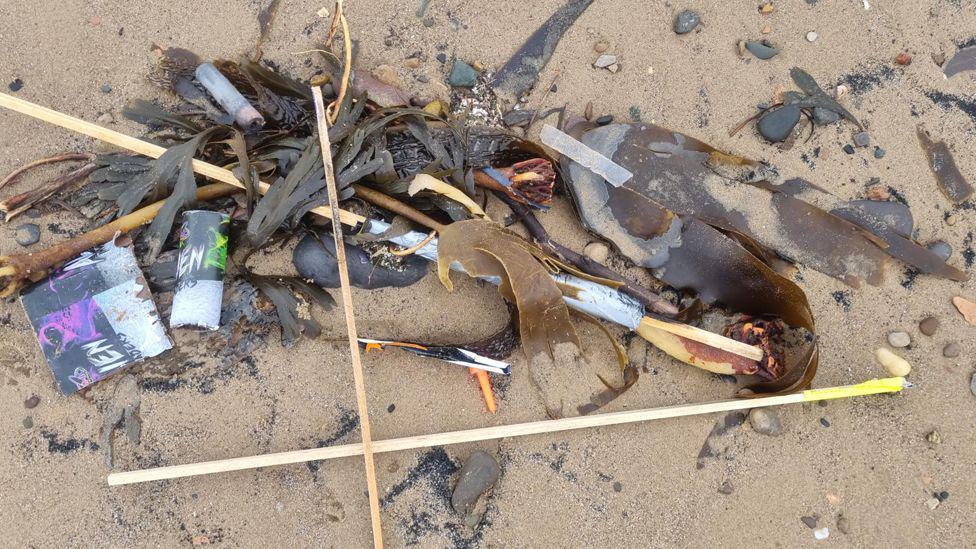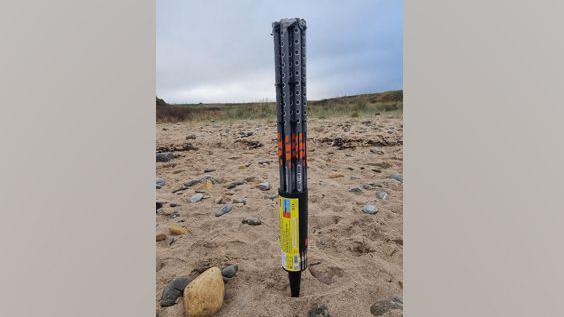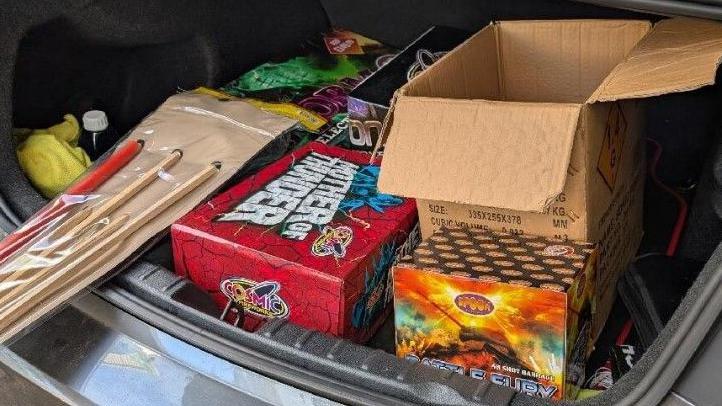'Dangerous' firework debris recovered from beach

Firework parts such as plastic, wires, fuses and chemicals can be dangerous
- Published
A woman who helps rescue marine animals is calling for stricter controls after discovering firework debris left behind on a beach.
A volunteer medic with British Divers Marine Life Rescue, Sharon Bell said she had filled five bags with leftover waste collected between Marske and Redcar, in Teesside.
Mrs Bell, who also picks up rubbish with Markse Litter Action group, wants access to fireworks restricted to organised displays only.
Marine animals can eat "dangerous" firework parts swept out to sea, including plastic canisters, fuses and chemicals, she warned.
Mrs Bell, 51, said: "We will never get them banned altogether but at least with the organised displays they are in one area and they are more controlled.
"When they are available to the public people can just set them off anywhere.
"There is no tidy-up of any kind afterwards."

Some of the debris was left in the places fireworks had been lit
The law does not permit fireworks to be set off in streets or other public places, external.
But pictures taken by Mrs Bell show they had been used on the beach, with some of the canisters left behind where they had been lit.
Other animals could be affected and she had seen gulls pecking through the debris, she said.
"All these fireworks have to come down somewhere," she said.
The noise made by them could also disturb nesting geese and seals, causing them to leave their young, she added.
Mrs Bell is calling for people to consider alternatives.
"Even just using the quiet ones can make a huge difference," she said.
"You could even go to drones.
"I know that's an expensive option but it is an option that is there."
Follow BBC Tees on X,, external Facebook, external, Nextdoor and Instagram, external. Send your story ideas to northeastandcumbria@bbc.co.uk.
Related topics
More stories from BBC North East and Cumbria
- Published30 October 2024

- Published3 November 2024
